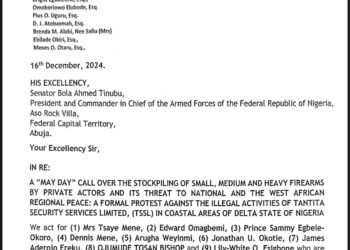Five men have been sentenced after hacking into an e-mail account and attempting to steal more than £3 million from a London businessman, SaharaReporters reports.
It was gathered that all five suspects were convicted at Southwark Crown court on Wednesday, May 22, following a five-month trial. They were sentenced at the same court on Friday, June 21.
It was reported that Anthony Oshodi, 49, of Dumbreck road, SE9, was found guilty of one count of money laundering, one count of possession of a false identity document and three counts of possession of articles for use in fraud. He was jailed for six years and six months.

Oshodi fled three weeks into the trial but was convicted and sentenced in absence.
Foyjul Islam, 51 of Aberfeldy street, E14, was found guilty of one count of money laundering. He was jailed for two years and six months.
Mohammed Siddique, 32 of Chancellor way, Dagenham, RM8, was found guilty of three counts of money laundering. He was jailed for six years.
Mohammed Rafeek, 34 of Hockley Avenue, E6, was found guilty of two counts of money laundering. He was jailed for two years and six months.
Meharoof Muttiyan, 35 of Hockley Avenue, E6, was found guilty of money laundering. He was jailed for one year and eight months.
The group was convicted following a complex investigation carried out by the Metropolitan Police Service’s Cyber Crime Unit (MPCCU) over four years.
The online medium reported that the suspects carried out their scam by altering the email account of a single victim, enabling them to send emails without his knowledge and preventing him from viewing messages from his accountant and bank.
According to the medium, in January 2015, the group sent several emails from the victim’s account to his bank requesting payment be made to a number of people. The payment was requested through fraudulent invoices containing account numbers belonging to the suspects.
Between 8 and 13 January 2015, approximately £1.3 million was transferred into three accounts, one of which belonged to Muttiyan.
He made a series of further transfers in an effort to mask the money.
Detectives managed to identify each suspect through the examination of banking, phone and computer records. Over the course of several months, they pieced together key evidence of the money trail, patterns of communication and the ownership of individual devices linked to the offences.
It was reported that the examination of the devices revealed messages between Oshodi and Siddique discussing the stolen money and Siddique and Islam exchanged instructions on how to launder the money and evade law enforcement.
The investigation revealed Oshodi’s links to the hacking of the victim’s e-mail account and his outsourcing of the laundering of £600,000 of the funds to Siddique.
His computer also contained copies of 1000 third party passports and bank cards which were used to create false identities.
Muttiyan acted as a primary money mule, transferring cash through the bank accounts of a petrol station, an insurance claims company, and a computer business owned by the group. Siddique organised the distribution of £600,000 and was found to be involved in two separate money-laundering offences.
Muttiyan was also linked to additional money laundering offences and was found in possession of a fraudulent £28,000 cheque.








